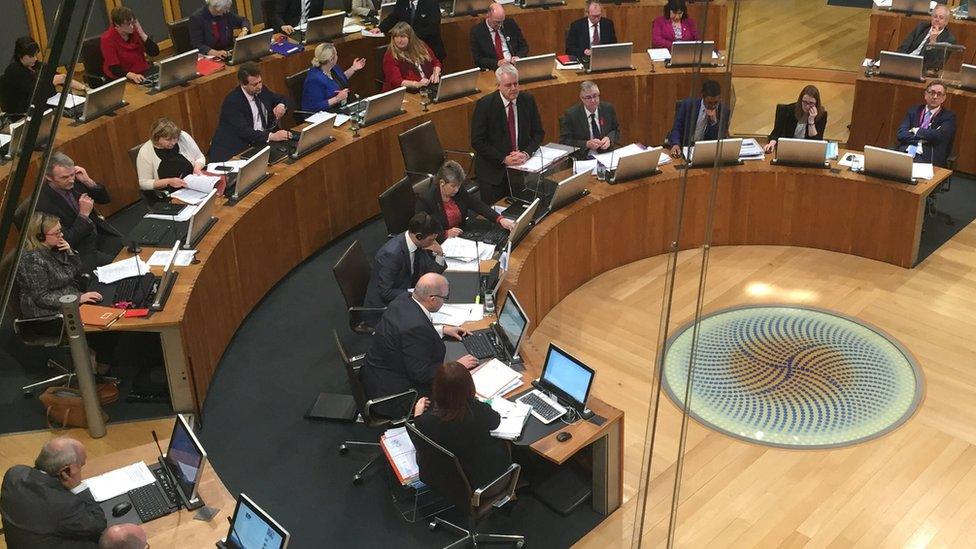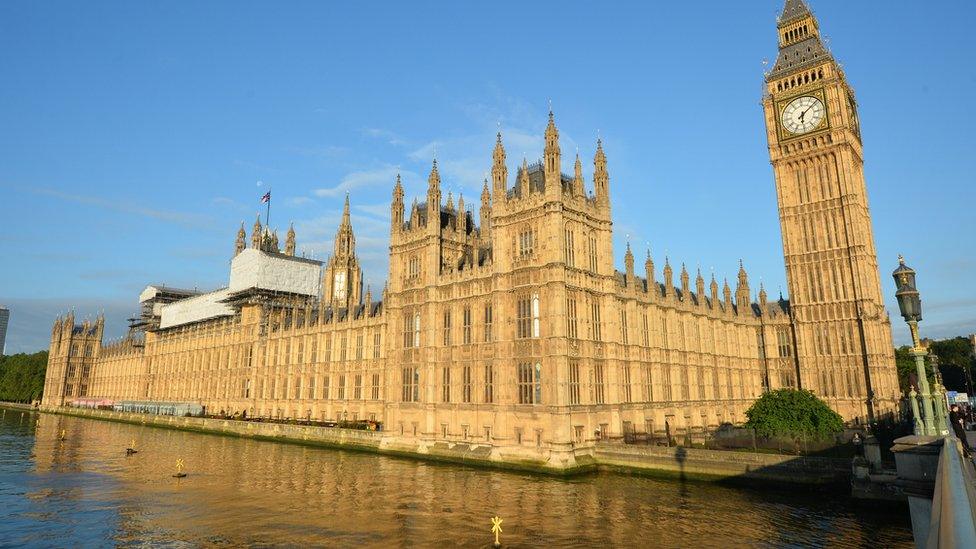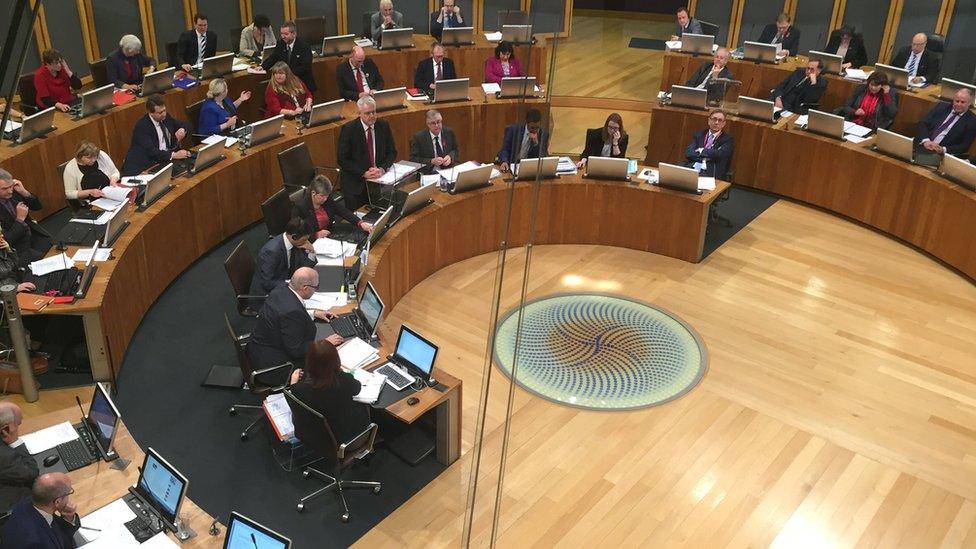Labour AMs back Wales Bill on further devolution
- Published

Hannah Blythyn says Labour has adopted a "challenging, but responsible approach" to the Wales Bill
Labour AMs have decided to back the next stage of devolution, ahead of a crucial vote in the assembly.
AMs will vote on whether to support the Wales Bill, which promises new powers for Wales but has been criticised.
With the support of Labour - which has 29 of the 60 assembly seats - and the 11 Tories, the legislative consent motion is set to pass on Tuesday.
The Wales Bill will transfer powers over energy, transport, assembly affairs and some degree of income tax.
The bill introduces a system of powers that are reserved to Westminster, but it has been criticised for being unclear and potentially resulting in a reduction of the assembly's ability to make laws.
Baroness Morgan said it was the best deal on offer
Delyn AM Hannah Blythyn, who chairs the Labour group, said: "As the party who delivered devolution for Wales we have rightly adopted a challenging, but responsible approach towards the passage of the Wales Bill.
"This is not the bill we would have developed and it is not the bill that Wales deserves.
"However, on balance this legislation will give the country more constitutional certainty and the fiscal framework in particular represents a real step forward.
"After a considered debate, the Labour Group has decided to vote in favour of allowing the UK Government to proceed."
Nick Servini says Labour AMs have taken a "hard, pragmatic look" at the situation

What is in the Wales Bill?

The Wales Bill will change how power is split between Westminster and the assembly
New powers for the assembly including on energy, transport, teacher's pay
A new system for how power is divided between the assembly and Westminster, called reserved powers
Devolution of income tax powers

UKIP has said it will vote against the bill, objecting to the devolution of income tax powers to the assembly without the referendum that would have been needed under existing legislation.
Plaid Cymru is not expected to come to a decision until its group meets on Tuesday.
But Lord Wigley, the former Plaid Cymru leader who spoke for the party during the bill's passage through the House of Lords, has warned the devolution settlement for Wales will remain "much weaker" than Scotland and Northern Ireland's.
Under a political convention between the assembly and Westminster, the Wales Bill needs a legislative consent motion passed in the Senedd before it can be become law because it relates to devolved matters.
The convention does not have legal force, but Wales Office minister Lord Bourne has said the bill will not become law if the assembly does not approve it.
- Published18 January 2017

- Published11 January 2017

- Published12 January 2017

- Published31 October 2016
